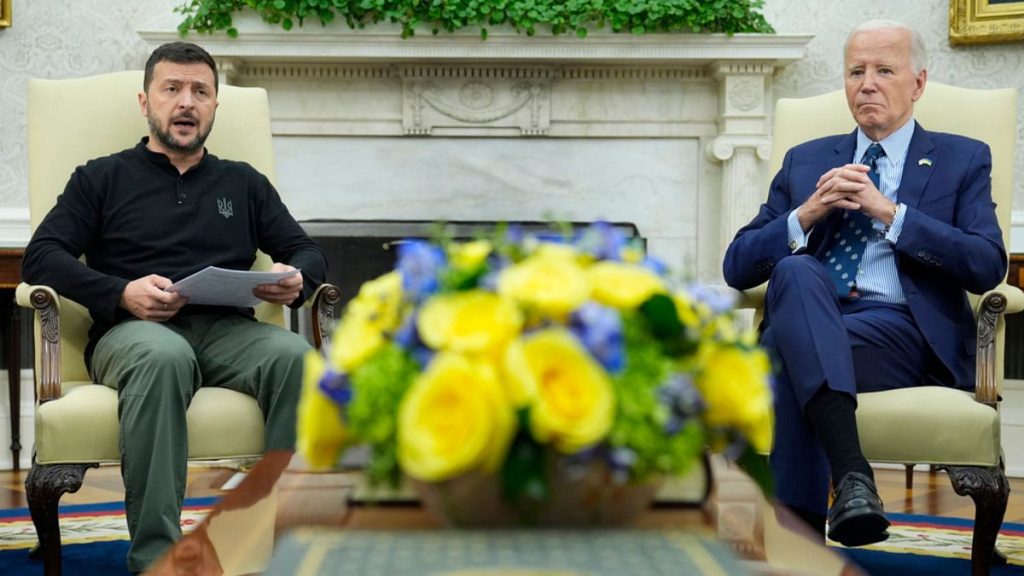The ongoing war in Ukraine has become a breeding ground for misinformation, with various narratives circulating online aiming to undermine public support for Ukraine and pressure Western governments to reconsider their aid. One prominent example of such disinformation is the persistent claim that US politicians, including President Joe Biden, have received bribes from Ukraine in exchange for their support. This allegation, spread through social media platforms like Threads and X, features a purported list of politicians and the alleged sums they received, with figures ranging from $71 million for Mitt Romney to $92 million for President Biden. However, these claims are entirely fabricated. There is no credible evidence to substantiate these accusations, and no legitimate news outlets have reported on them. The narrative lacks plausibility, as it would be highly illogical for a Ukrainian official to release such incriminating information against the very politicians upon whom Ukraine relies for vital financial and military assistance.
The dissemination of this false narrative exhibits several characteristics common to disinformation campaigns. The accompanying text often displays poor grammar and stylistic inconsistencies, suggesting it is copied, pasted, and shared widely without proper vetting. Furthermore, a search of online platforms reveals that this specific claim has been circulating since at least 2023, having been repeatedly debunked by reputable fact-checking organizations. The resurgence of this narrative underscores the persistent nature of disinformation and the need for continued vigilance in identifying and countering false claims. The consistent reappearance of this narrative, despite its debunking, highlights the challenge of combating misinformation online.
The motivation behind this disinformation campaign appears to align with pro-Russian propaganda efforts. By falsely portraying Western support for Ukraine as driven by corruption and self-interest, these narratives seek to erode public trust and create pressure to reduce or halt aid to Ukraine. This undermines the international effort to assist Ukraine in its defense against Russian aggression. The timing of this misinformation campaign is also noteworthy, coinciding with discussions about the future of US aid to Ukraine under a new administration. The dissemination of these claims seeks to exploit existing anxieties about the level of US spending on Ukraine aid and further fuel skepticism towards continued support.
The sheer scale of Western aid to Ukraine makes the bribery allegations even more implausible. The United States alone has committed nearly $183 billion in assistance since the start of the full-scale Russian invasion in 2022. The European Union, collectively and through individual member states, has also contributed over $140 billion in financial, military, humanitarian, and refugee assistance. These substantial contributions underscore the commitment of Western governments to supporting Ukraine’s sovereignty and territorial integrity in the face of Russian aggression. The false bribery narrative attempts to downplay this genuine commitment by portraying it as a product of corruption rather than a principled response to an unprovoked invasion.
The potential implications of a shift in US policy regarding aid to Ukraine are a source of concern for European allies. Given the United States’ role as the single largest donor to Ukraine, any reduction or cessation of American aid could significantly impact Ukraine’s ability to defend itself. This concern is further amplified by the historical context of fluctuating US foreign policy and the possibility of a change in priorities under a new administration. European allies are actively discussing strategies to maintain support for Ukraine and enhance domestic weapons production in anticipation of potential changes in US policy. These discussions underscore the importance of transatlantic cooperation and the need for a unified approach in supporting Ukraine’s defense.
The spread of disinformation about US aid to Ukraine serves as a stark reminder of the challenges posed by misinformation in the digital age. It is crucial to remain critical of information encountered online and to verify claims through reputable sources. Fact-checking organizations and legitimate news outlets play a vital role in debunking false narratives and providing accurate information. The ongoing information war surrounding the conflict in Ukraine highlights the need for media literacy and critical thinking skills to discern truth from falsehood. The international community must remain vigilant in countering disinformation campaigns and upholding the principles of factual reporting and informed public discourse.














